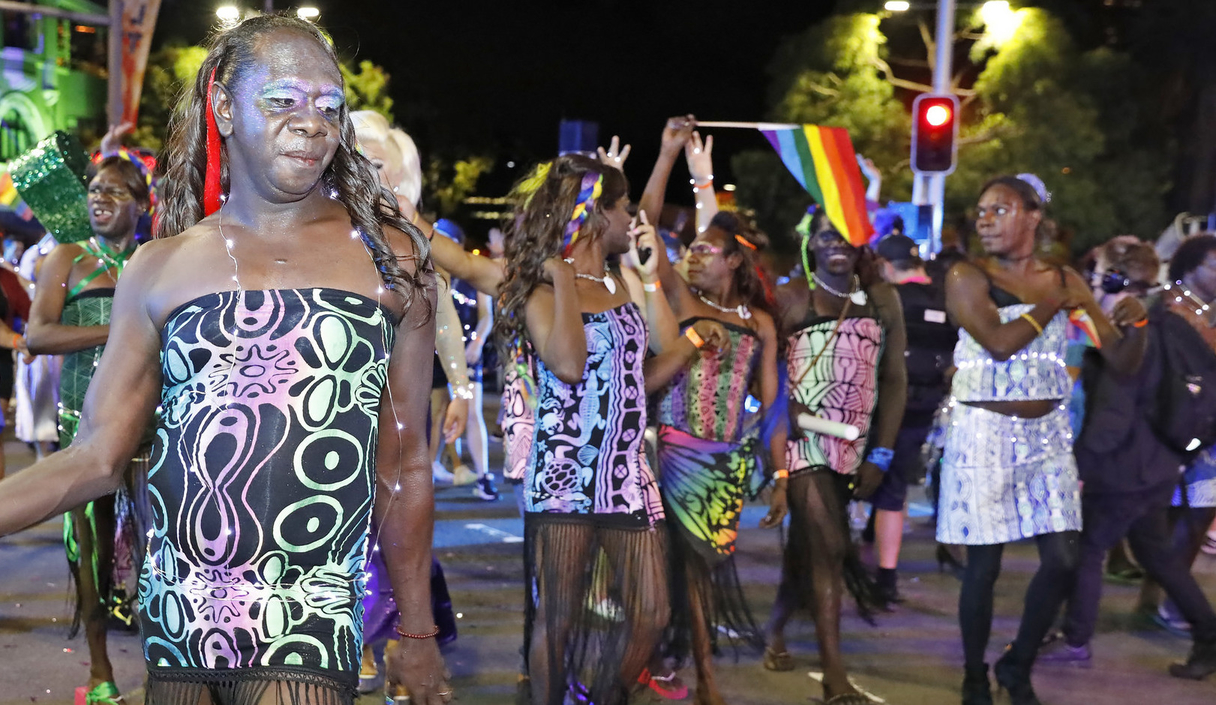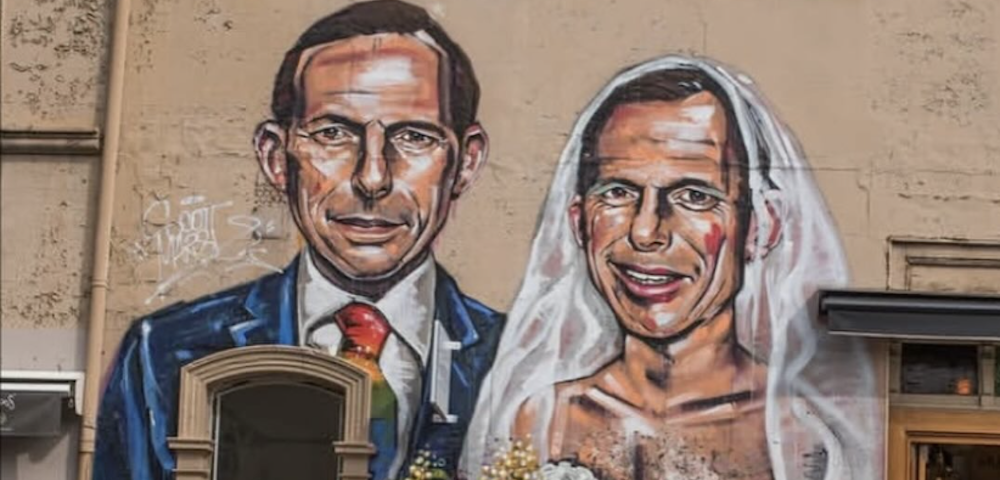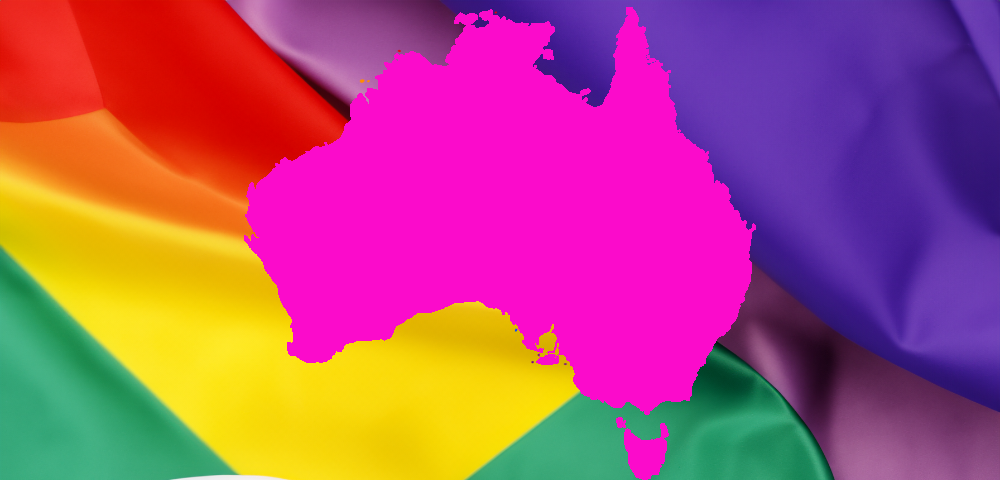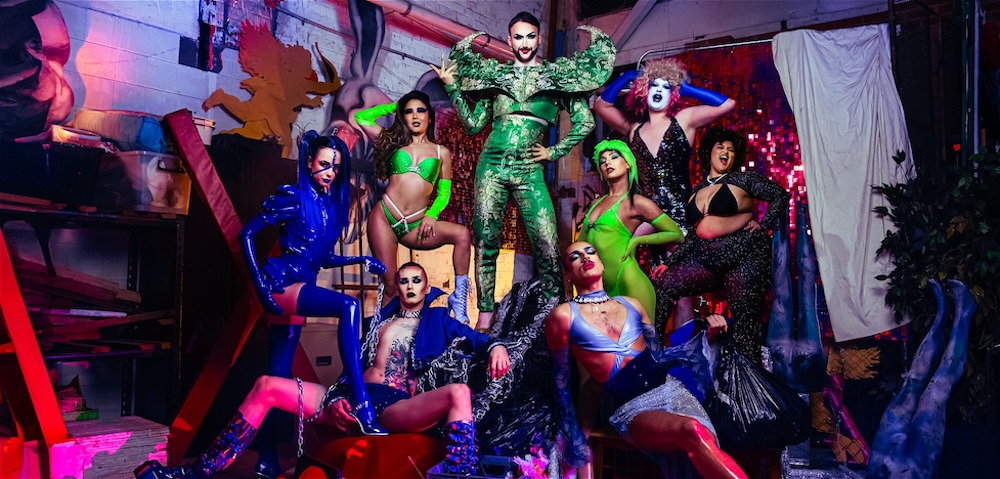
The reality of being black and trans in Australia

Sistergirls and brotherboys are terms used in the Aboriginal community to describe being trans in a way specific to Indigenous folks. Jess Jones caught up with three trans people from different Aboriginal backgrounds to chat about life.
***
The most famous Indigenous trans folks may be the Tiwi Islands sistergirls, who made their Mardi Gras debut in Sydney this year. But sistergirls and brotherboys live in cities and towns all around Australia.
Lisa is a sistergirl in her fifties, a Worimi woman from the Port Stephens area in New South Wales. She had a strong sense of gender identity from an early age.
“I officially transitioned when I was fifteen or sixteen, but before that I was already dressing as female,” she says.
Lisa is active in the LGBTI community, and runs the Facebook group Sistergirls & Brotherboys Australia.
Her home in the Northern Rivers region of New South Wales is a town with other Indigenous trans people too. She says one of the biggest misconceptions is that sistergirls only come from the Northern Territory.
Lisa believes the biggest issue is discrimination, and recounts a time last year when she had to report an assault to the police.
She was told that she would have to report the assault using her old name, which she changed over 30 years ago – effectively outing her as trans to her attacker and putting her in further danger.
After a number of weeks, the issue was resolved and Lisa was finally able to complete the paperwork with her correct details.
“The issue was them just not caring,” says Lisa. “It was really transphobic and horrible.”
Another significant issue Lisa sees for sistergirls is isolation, and access to community and services, particularly for those in rural areas.
“A lot of them don’t have access to hormones, so if they present at a women’s shelter they may not be allowed in, for example,” she says.
“And for anyone remote, a lot of them go into Aboriginal Medical Services that just aren’t equipped for dealing with gender issues. A lot of work needs to be done.
“A lot of Aboriginal people may also be scared to go to an AMS for that sort of issue because of fears about confidentiality. Members of the family may work there, so they may not want to talk about it for fear of being outed.”
Lisa has found that people in the general community do tend to know what ‘sistergirl’ means, and people in the LGBTI community tend be a little better informed as well. But while awareness may be increasing, acceptance from the wider community lags behind.
“Like other trans people in this country, we’ve still got a long way to go as far as acceptance,” she says. “A lot of times we’re just tolerated.
“Once upon a time, historically, we were very accepted and had a place in the community. I think with the introduction of colonisation and religion and other beliefs, a lot of that stuff has been lost.”
Less well-known than sistergirls for most people are brotherboys, Aboriginal trans men.
Travis is a 15-year-old Bundjalung brotherboy from the Tweed Coast. He’s identified as a brotherboy for the last six months or so, but has known he was trans since an early age.
“Ever since I was little,” he says. “I would insist on being called a nephew or son rather than daughter.”
Travis hasn’t started medical transition yet, but he has socially transitioned, choosing a new name and formalising his male identity. Growing up in foster care, he found the system made it difficult for him to change the details on his identification. To make his name change official, he’ll need multiple supporting doctors’ letters.
Part of Travis’ family is white, the other part Aboriginal. He’s experienced coming out as trans to both sides of his family, and they each took it differently.
“My white family is not so accepting, but my Aboriginal family is very accepting,” he says.
“When I first came out my biggest worry was that the Indigenous side of my family wouldn’t accept me, that they might not have the resources to know what it was about, but it was actually the other way around.”
Travis finds gender diversity is more accepted in the Indigenous community, and as a brotherboy he’s been accepted by the LGBTI community – although people frequently don’t know what ‘brotherboy’ means when he introduces himself. The wider community can be less accepting.
“When white people see a transgender Aboriginal, I feel like they don’t accept,” he says. “They just don’t get it.”
Travis says he hasn’t been discriminated against since he’s been out as trans, but he worries about racial harassment.
“When I go into the community I’m this white Aboriginal who doesn’t fit into black culture,” he explains. “I’m too white for the blacks, and too black for the whites.”
Taz, 19, is a brotherboy from the Kalkadoon and Bwgcolman nations in Queensland. He currently lives in Toowoomba.
He started transition a couple of years ago, and says it’s the best decision he’s ever made.
Taz says being a brotherboy is different to being a trans guy in the wider community in that there are other cultural aspects of gender.
“Even though I might be male, I can’t just go and play the didge,” he says, for example. “That’s still a very big no-no.”
Growing up under Child Safety Services, Taz found the same problems as Travis in having his identity documents updated. He was referred to by his old name and pronouns, and at one point was forced to travel with a passport showing the incorrect gender. He’s now taking legal action over the way he was treated.
“It’s not just me that’s affected,” he says. “It’s discrimination. There’ll be others further down the track, and being denied their rights could tip someone over the edge.”
Taz also finds his gender and racial identity intersect in the way others treat him.
“We face more angles of discrimination,” he says. “We’re not only trans but we’re also Aboriginal.
“It’s a bit harder, especially for me as a darker-skinned Murri, I can’t exactly hide from it. Since I was a kid, there was always someone with a snarky comment about something.
“But things like that just make me feel even stronger about who I am. When I was younger I used to let it get me down, but now—nah, stuff that.
“There’s nothing to be disgusted about. We’re part of a culture that’s been going for thousands of years. You can’t say that’s not impressive.”









